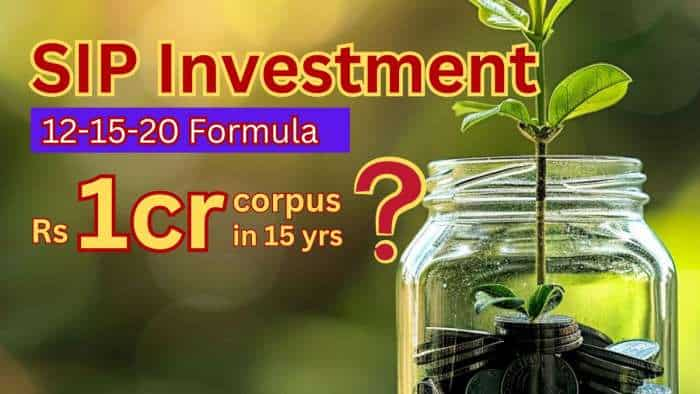War Casualty: How Russia-Ukraine crisis may dent India's auto sector
India's automobile industry is expected to bear the brunt of lower supplies of components triggered by the ongoing Russia-Ukraine war.

India's automobile industry is expected to bear the brunt of lower supplies of components triggered by the ongoing Russia-Ukraine war.
Besides, the industry is expected to face subdued consumer sentiment as OMCs are expected to raise domestic fuel prices in consonance with high crude cost.
Notably, both the countries produce key raw materials which are used in components that are key to producing automobiles such as semiconductors.
Currently, Russia is one of the largest producers of -- Palladium -- which is essential for memory and sensor chips along with several other rare-earth metals.
On the other hand, Ukraine is a leading producer and exporter of 'Neon Gas' that is used for several processes in the manufacturing of semiconductors like etching circuit designs into silicon wafers to create chips.
Notably, while the Covid's impact on semiconductor production eases, the pressure is expected to be build-up from the ongoing geo-political crisis.
In the last one year, the shortage has impacted production of vehicles, consequently, elongating waiting periods and escalating cost.
On a technical basis, semiconductors play a critical part in the production of internal combustion engines.
They are an integral part of all kinds of sensors and controls in any vehicle.
"If the geo-political tension continues for long then it could have ramifications on the semiconductors industry which was already struggling to find ground," said Hemal Thakkar, Director, Crisil.
Furthermore, other commodities' cost pressures on the back of the crisis, will keep vehicle prices high.
In the first 10 months of FY22, steel and aluminium prices have increased by around 15 per cent and 34 per cent respectively, and Brent crude by around 32 per cent.
This trend is likely to continue or even get accelerated.
"The ongoing tensions between Russia and Ukraine comes at a time when the domestic auto sector is at cusp of recovery and amidst headwinds like elevated commodity prices and global semiconductor crisis," said Rohan Kanwar Gupta, Vice President & Sector Head - Corporate Ratings, ICRA.
"A long drawn out war could impact chip supply and constrain production levels across segments, and thus would remain a monitorable."
Additionally, the crisis has spiked crude oil prices which have the potential to push up domestic fuel cost.
At present, India is a major crude oil importer in the world, and for it, the price range is a cause of concern as it may add Rs 20 to Rs 22 in petrol and diesel selling prices, if the OMCs decide to revise the current prices.
Lately, petrol and diesel prices have been largely stable over the past 3 months.
"Increasing fuel price is definitely one of the factors which has hurt the demand for entry level models especially in the two wheeler segment due to higher running costs," said Pallavi Bhati, Senior Analyst, India Ratings and Research.
"Any substantial increases going forward could further dissuade consumers for purchase of new vehicles."
Get Latest Business News, Stock Market Updates and Videos; Check your tax outgo through Income Tax Calculator and save money through our Personal Finance coverage. Check Business Breaking News Live on Zee Business Twitter and Facebook. Subscribe on YouTube.
RECOMMENDED STORIES

Senior Citizen Latest FD Rates: Know what major banks like SBI, PNB, Canara Bank, HDFC Bank, ICICI Bank are providing on fixed deposits

Gratuity Calculator: Rs 38,000 as last-drawn basic salary, 5 years and 5 months of service; what will be gratuity amount?

Top 5 Small Cap Mutual Funds with best SIP returns in 1 year: See how Rs 25,000 monthly investment has grown in each scheme

Top 7 SBI Mutual Funds With Best SIP Returns in 1 Year: Rs 25,000 monthly SIP investment in No.1 fund has jumped to Rs 3,58,404

SBI 5-Year FD vs MIS: Which can offer higher returns on a Rs 2,00,000 investment over 5 years? See calculations
05:54 PM IST










 Nissan kicks off exports of New Magnite SUV to South Africa
Nissan kicks off exports of New Magnite SUV to South Africa Automobile retail sales grow 12% to 42.88 lakh units in festive period: FADA
Automobile retail sales grow 12% to 42.88 lakh units in festive period: FADA  Government, semi-govt bodies need to scrap 13k vehicles older than 15 years by January-end
Government, semi-govt bodies need to scrap 13k vehicles older than 15 years by January-end  Audi India opens bookings for new Audi Q7 - check booking amount, launch date, other details
Audi India opens bookings for new Audi Q7 - check booking amount, launch date, other details Bharat-NCAP Crash Test: Mahindra sets new safety benchmark as Thar ROXX, XUV 3XO, and XUV400 secure 5-star rating
Bharat-NCAP Crash Test: Mahindra sets new safety benchmark as Thar ROXX, XUV 3XO, and XUV400 secure 5-star rating